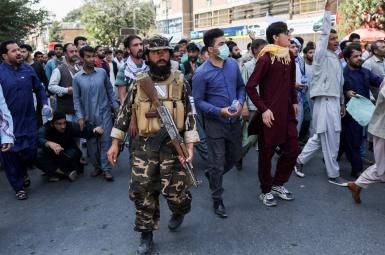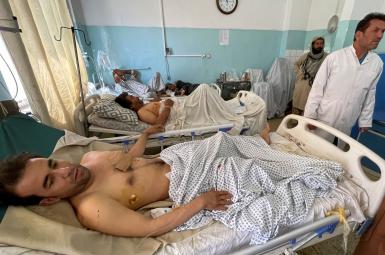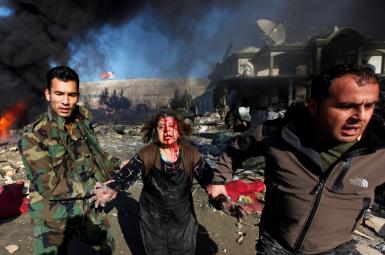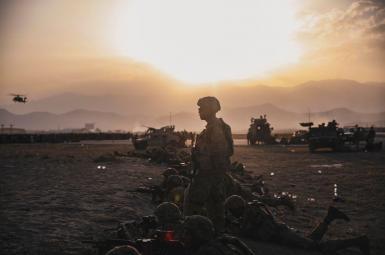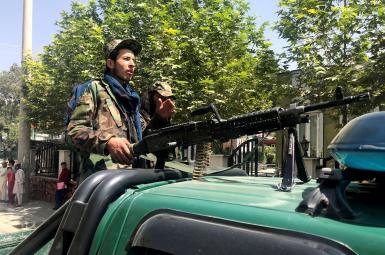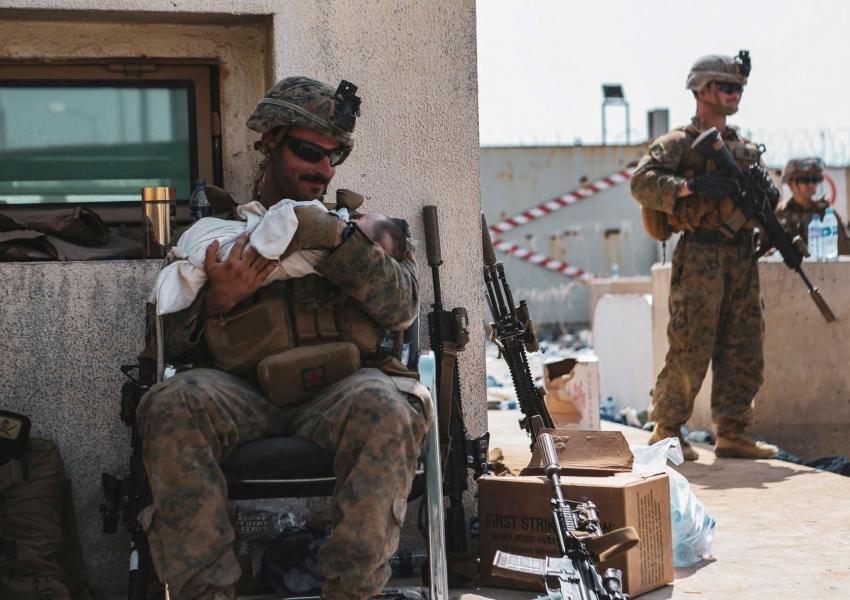
Russian Envoy Says ‘No Alternative’ As Debate Rages Over Taliban
Dmitry Zhirnov, Russia’s ambassador to Afghanistan, told Reuters news agency Friday that a “bad regime” had gone and the Taliban were now the “de facto authorities.” Zhirnov said there was “no alternative” to Taliban rule and scorned any notion that Ahmad Massoud, son of 1980s mujahideen leader Ahmad Shah Massoud, would lead resistance from the Panjshir valley north of Kabul.
Russia is one among many states assessing Afghanistan’s new rulers. Pakistan is alone in its fulsome welcome, with prime minister Imran Khan saying Tuesday the Taliban were “breaking the shackles of slavery” and Pakistan Kabul ambassador Mansoor Ahmad Khan confirming Friday Islamabad was in contact with the Taliban to help form an “inclusive” government.
Russia is inclined to see events as an end to a 20-year United States military intervention, even if the Taliban example may encourage Sunni Islamists within Russia and its central Asian neighbors. Zhirnov stressed Afghanistan should not be seen solely as Kabul airport, where he said many trying to leave saw “a possible ticket to a new life (in the West)…[which] may not be related to the Taliban.”
Iran, Saudi, UAE Reactions
Within Iran, a debate in recent days has seen some emphasizing a US defeat, others arguing Iran must deal with realities, and others warning of the ‘extremism’ of the Taliban, whose militant Sunnism has often been hostile to Shiites.
Abdolhamid Esmail-Zehi, Friday prayer leader in Zahedan and perhaps Iran’s most senior Sunni cleric, has supported the Taliban advance. But Mohammad-Mehdi Hosseini-Hamedani, Friday prayer leader in Karaj, said Friday that Iran should be wary, given the Taliban past behavior, and warned Afghanistan’s new rulers that their fate would be “worse than that of Isis” [the Islamic State group, or Daesh] if they antagonized Iran.
Saudi Arabia and the United Arab Emirates (UAE) – alongside Pakistan and Turkmenistan the only countries that recognized the Taliban 1996-2001 – have been cautious. Some analysts have suggested Saudi Arabia might exert a moderating influence on the Taliban, possibly cooperating with the UAE to exert financial clout. But commentator Faheem al-Hamid warned in Okaz newspaper that Afghanistan now had extremism “in the seat of power,” while a continuing civil war would draw in foreign players.
Blaming each other
Sheikh Hamad bin Jassim al-Thani, a member of the ruling family in Qatar, where the Taliban has a representative office, tweeted Friday that the world should “respect the current situation in Afghanistan… [and] give them [the Taliban] hope that it will accept them and cooperate with them in return for their commitment to international norms."
In the US, Republicans and Democrats have been blaming each other over US withdrawal, with former president Donald Trump demanding President Joe Biden resign. Human rights groups have argued the US, which capped refugees under Trump, should take greater responsibility for those who worked with the occupation.
In the Boston Globe Tuesday, Sarah Chayes, a former National Public Radio reporter who became an advisor to US Afghanistan commanders, highlighted government corruption and the close Taliban relationship with Pakistan. Chayes questioned the role played in setting up the Taliban takeover by Zalmay Khalilzad, who led US talks leading to Trump’s 2020 agreement with the Taliban to withdraw US forces in return for Taliban pledges not to allow bases for groups, like al-Qaeda, who might threaten “the security of the United States and its allies.”
